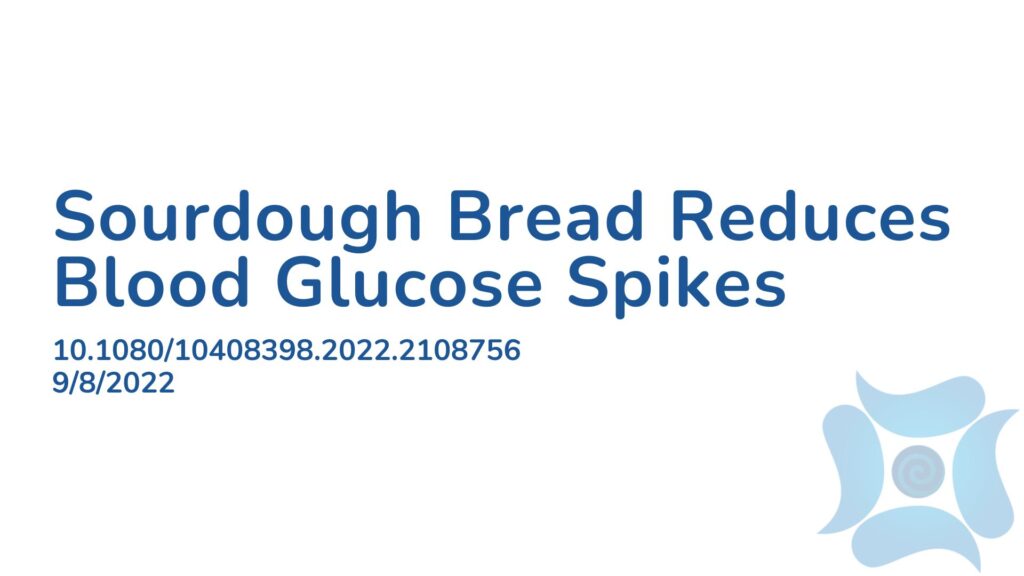Summary:
The purpose of this systematic review including 18 studies was to understand the impact that sourdough bread has on glucose spikes and appetite, as well as hormones that are responsible for appetite and hunger such as leptin and ghrelin. The study compared sourdough bread to ordinary supermarket bread that is fermented industrially and how this impacts the glucose control of adults over 18 years of age. The findings showed that sourdough bread had a lower impact on blood glucose spikes after 60 minutes of consumption, compared to industrial bread. After 120 minutes of consumption the sourdough bread still showed a lower impact on blood glucose. These findings are important for overall health as frequent glucose spikes can lead to poor glucose control or inflammation, which then effects metabolic health.
Abstract:
The aim of this study was to carry out a systematic review of clinical trials followed by meta-analysis, to evaluate the effect of sourdough bread on glycemic control and appetite and satiety regulators such as leptin, ghrelin, GLP-1 (glucagon-like peptide-1), GLP-2 (glucagon-like peptide-2), NPY (neuropeptide Y), AgRP (agouti-related protein), PYY (peptide YY), and GIP (glucose-dependent insulinotropic polypeptide). Clinical trials compared the intake of sourdough bread to that of an industrially fermented one or control glucose solution in adults over 18 years of age. This systematic review included all randomized, parallel, or crossover trials published up to June 2021 in the EMBASE, MEDLINE, Scopus, and Web of Science databases. After the selection process, 18 studies were included. The analysis of the final average difference of the change in serum glucose after 60 minutes for the intervention indicated that the consumption of sourdough bread has a lower impact on blood glucose compared to that of industrial bread or glucose (MD = −0.29, IC 95% = [−0.46; −0.12]; I2 = 0%). The evaluation of blood glucose 120 minutes after the consumption of the intervention also indicated a lower increment in blood glucose when compared to the consumption of other types of bread or the same amount of glucose (MD = −0.21, IC 95% = [−0.32; −0.09]; I2 = 0%). The certainty of evidence varied from low to very low. The results showed that sourdough is effective in reducing the increment of postprandial glycemia, especially when prepared with whole wheat flour, although it does not reduce fasting serum insulin, nor does it change plasma PYY.
Article Publication Date: 9/8/2022
DOI: 10.1080/10408398.2022.2108756



